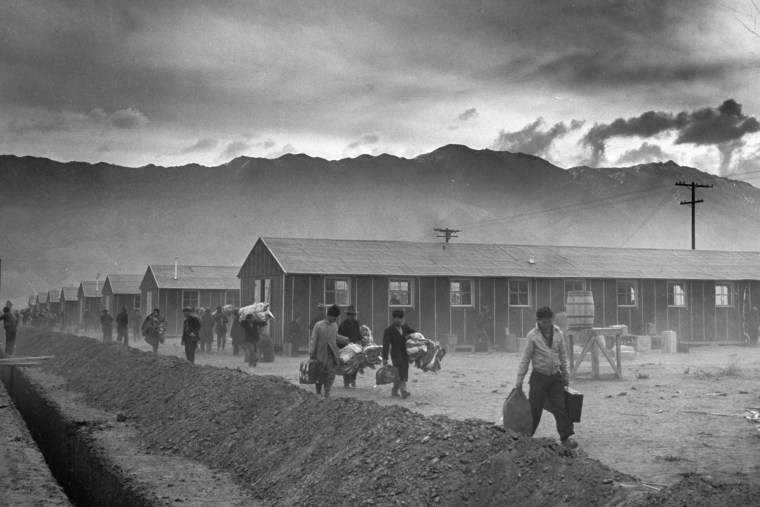A new law signed by President Joe Biden on Wednesday will help memorialize the history of the U.S. government's incarceration of Japanese Americans during World War II.
The legislation, spearheaded by Rep. Doris Matsui, D-Calif., and Sen. Brian Schatz, D-Hawaii, would reauthorize funds that help preserve the sites in which tens of thousands of Japanese Americans were detained, including Manzanar in California and Rohwer in Arkansas.
“The internment of Japanese American citizens remains one of the darkest and most shameful periods in our history,” Schatz said in a statement about the law. “The stories of so many who unjustly lost their freedom, lost property, and were forcibly uprooted from their homes should be a constant reminder of our duty to uphold the rights of every American.”
The Norman Y. Mineta Japanese American Confinement Education Act was introduced in the House in March 2021 and passed without objection this year before gaining Senate approval. Mineta, a former secretary of transportation who died last May, was the first Asian American to become a Cabinet secretary and had spent two years in an incarceration camp.
The act will not only renew funding for the 2006 Japanese American Confinement Sites Program, but also designate $10 million for grants to understand the “use and abuse of power,” and promote awareness around this dark period in American history.
More than 75 years ago, the U.S. government incarcerated 120,000 Japanese Americans in response to xenophobia and the wartime hysteria that followed the bombing of Pearl Harbor in 1941. The community had been deemed a national security threat. Decades later, a federal commission tasked with investigating the wartime exclusion found that the government had moved forward with removal and detention despite there being no documented evidence of a threat of espionage or sabotage.
The findings served as the basis for the Civil Liberties Act, signed by President Ronald Reagan in 1988, offering a formal apology for the mass incarceration, following a large-scale movement by the Japanese American community. It also provided reparations for surviving victims.
